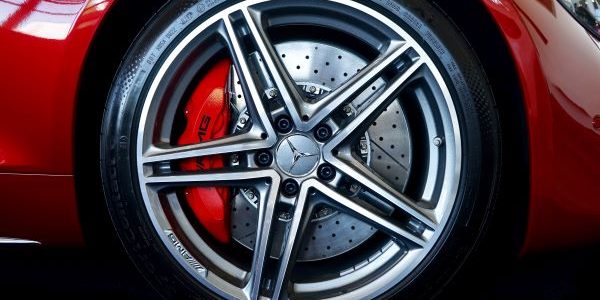Essential Wheel and Tire Care Tips for Safety and Performance
Your vehicle’s wheels and tires are more than just parts that keep your car moving—they are the foundation of safety, performance, and efficiency on the road. Proper wheel and tire care ensures that your vehicle grips the pavement in all weather conditions, handles smoothly, and delivers maximum fuel efficiency. Beyond functionality, keeping your wheels in great shape also enhances your vehicle’s appearance and value.
By following a few best practices, you can protect your investment, extend the lifespan of your tires, and enjoy peace of mind knowing your car is road-ready. Let’s look at the most effective ways to maintain your wheels and tires.
Tire Maintenance
- Regularly Check Tire Pressure – Checking tire pressure at least once a month—and before long trips—keeps your vehicle safe and efficient. Underinflated tires increase fuel consumption and wear unevenly, while overinflated tires reduce traction and cause harsh rides. Use a quality tire pressure gauge for accuracy, and always compare your reading with the recommended pressure listed in your vehicle’s manual or on the driver’s door placard. Properly inflated tires last longer, improve fuel economy, and ensure reliable handling.
- Inspect Tire Tread Depth – Tire tread depth directly affects traction, especially on wet or slippery roads. Without adequate tread, stopping distances increase, and the risk of hydroplaning grows. Use a tread depth gauge or perform the penny test: insert a penny into the tread with Lincoln’s head upside down. If you see the top of his head, it’s time for new tires. Always replace tires when tread depth reaches 2/32 of an inch or less for safe driving.
- Rotate Tires Regularly – Uneven tire wear shortens the lifespan of your set. To keep wear even, rotate your tires every 5,000 to 7,500 miles, or as recommended in your owner’s manual. Regular rotations help maintain balanced handling, extend tire life, and save you from replacing tires prematurely.
- Maintain Proper Wheel Alignment – When your vehicle pulls to one side or your steering wheel feels off-center, it’s often a sign of misaligned wheels. Poor alignment causes uneven tire wear, reduces fuel efficiency, and makes driving less safe. Schedule a wheel alignment at least once a year or sooner if you notice symptoms. Proper alignment ensures straight, stable driving and protects your tires from early replacement.
- Balance Your Wheels – Unbalanced wheels cause vibrations, particularly at higher speeds, and contribute to uneven tire wear. Whenever you install new tires or feel vibrations while driving, have your wheels balanced. Balanced wheels provide a smoother ride and prevent strain on suspension components.
Wheel Care
- Avoid Curb Rash – Curb rash isn’t just unattractive. It can also lead to long-term damage. Scraped rims can corrode over time if left untreated. Stay mindful when parking or pulling into tight spaces. If you do hit a curb, inspect your wheels immediately. Minor scratches can often be repaired, preventing corrosion from spreading.
- Clean Wheels Regularly – Brake dust, road grime, and debris can eat away at your wheel’s finish if left uncleaned. Wash your wheels regularly with a mild wheel cleaner and a soft brush. Avoid harsh chemicals or abrasive tools, which may damage the finish. Regular cleaning not only keeps wheels looking sharp but also preserves their structural integrity.
- Apply Wheel Sealant or Wax – Protective products like wheel sealant or wax create a barrier against brake dust, salt, and dirt. After cleaning your wheels, apply a thin layer of sealant or wax to extend their shine and reduce the risk of corrosion. This simple step helps your wheels stay cleaner for longer.
- Inspect for Corrosion – Corrosion can compromise both the look and durability of your wheels. Watch for bubbling paint, rust spots, or pitting. Address issues early by cleaning and applying touch-up paint, or have a professional refinish your wheels if needed. Preventive action can save you from costly replacements.
- Protect Against Winter Elements – If you live in a region with harsh winters, road salt can wreak havoc on your wheels. Consider using a dedicated set of winter wheels or applying a protective coating to your standard set. Rinse your wheels often in winter months to remove salt and prevent corrosion.
- Store Properly When Not in Use – For those with a spare set of wheels—such as summer and winter sets—proper storage is key. Store wheels in a cool, dry area away from direct sunlight. Use wheel bags or covers to protect them from dust and scratches. Correct storage preserves wheel condition between seasons.
Wheel and tire care is an essential part of responsible vehicle ownership. From checking tire pressure to protecting your wheels against corrosion, these simple maintenance steps enhance safety, improve performance, and save money over time. A little proactive care today prevents costly repairs tomorrow, giving you confidence every time you hit the road.
If you’re unsure whether it’s time to replace your tires—or if you want expert help with wheel care—call Sharp Auto Body at 847-526-1343. Our team will keep your vehicle safe, efficient, and looking its best.








